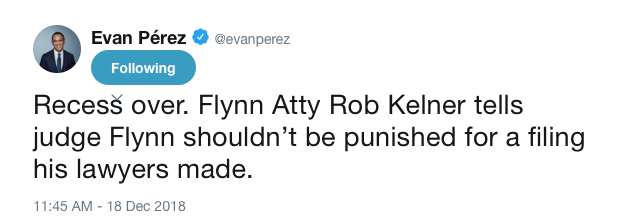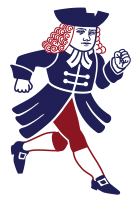
You don’t see me writing about criminal law here for good reason — it’s not what I do. But something happened during the sentencing hearing for General Michael Flynn today that deserves mention.
As many know, he was showing up to be sentenced for lying to the FBI about his contacts with Russians and with regard to statements he made about his involvement as an agent for Turkey. Given that he was Trump’s National Security Advisor, and he was compromised, this was obviously a big thing.
But during the sentencing, press reports were that Judge Emmet G. Sullivan was, shall, we say, a bit irritated. To say the least. He called Flynn’s conduct “a very serious offense” and said he was not hiding his “disgust” at what Mr. Flynn had done. At one point he asked prosecutors if they had considered charging him with treason.
A small part of that anger may have been due to the fact that, prior to the sentence, Flynn’s lawyers suggested he might have been set up, or duped, by the FBI.
And this is the reason that I write on this subject — because it has nothing to do with criminal law but about the relationship between attorneys and clients in general:
At the hearing, Judge Sullivan brought the subject up, making sure that Flynn distanced himself from the comments of his lawyers and fully acknowledged that he knew he wasn’t supposed to be lying to the FBI, even if they didn’t tell him he was the subject of an investigation.
Who’s idea was it to vacillate a bit on the reason Flynn got busted? to suggest that, perhaps, he was somehow entrapped? Lawyer or client? Beats me. But at the hearing it didn’t matter to the lawyer.
At the hearing, to spare his client, Flynn attorney Rob Kelner said his client shouldn’t be punished for the conduct of his attorneys. He fell on his sword; he threw himself under the bus; he bit the bullet. No matter the metaphor you choose, the lawyer owned the problem and told the court the bucks stops with him.

Because that’s what a good lawyer is supposed to do.
